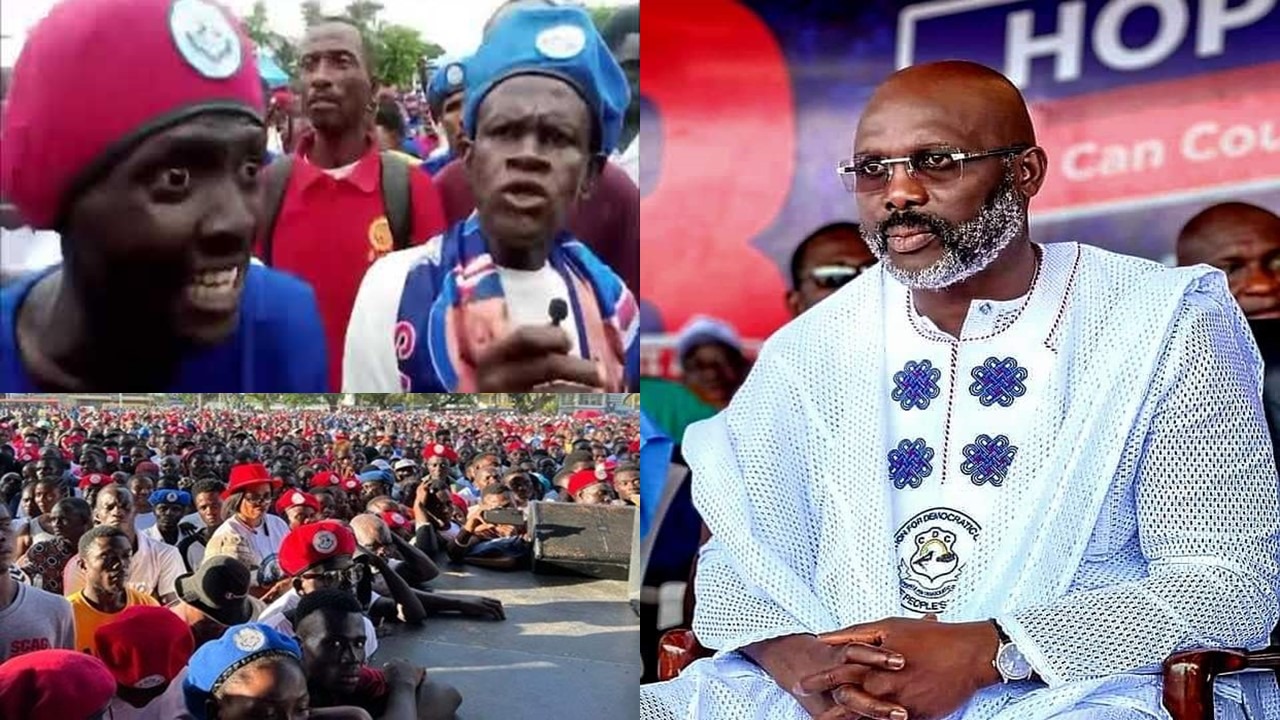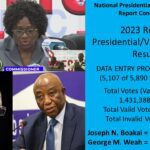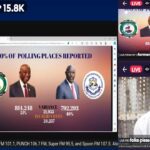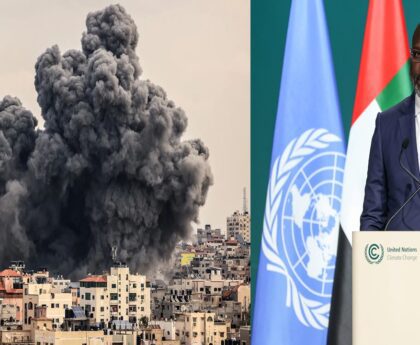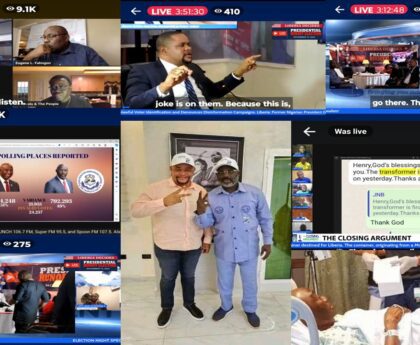In a nation characterized by political fervor and passionate supporters, the announcement of election results can often be a defining moment. Liberia is no exception, and the recent projection by the National Elections Commission (NEC) indicating that Ambassador Joseph N. Boakai is leading over President George Manneh Weah in the run-off election has stirred a range of emotions, particularly among the supporters of the ruling party, the Coalition for Democratic Change (CDC). The CDCians’ discontent is palpable, reflecting a complex political landscape and highlighting the challenges of navigating the aftermath of closely contested elections.
Background:
The political climate in Liberia has been charged in recent months, with both candidates campaigning vigorously for the presidency. President George Weah, a former international football star, has been in office since 2018 and is seeking re-election, facing stiff competition from Amb. Joseph N. Boakai, the former Vice President of Liberia. As the NEC releases projections indicating Amb. Joseph N. Boakai’s lead, the CDCians find themselves grappling with the possibility of a change in leadership.
Reasons for Discontent:
Several factors contribute to the discontent among CDCians regarding the NEC’s announcement. Firstly, the passionate support for President George M. Weah has fostered a deep sense of loyalty among his followers. President George M. Weah, often hailed for his efforts to address economic challenges and promote development, has garnered a devoted fan base, making the prospect of a change in leadership unsettling for many CDCians.
Secondly, concerns about the electoral process have been raised by some CDC supporters. Accusations of irregularities and calls for a transparent and fair election process have amplified the frustration among those who question the legitimacy of the projected results. The tension is further fueled by the history of contested elections in Liberia, making citizens wary of potential electoral improprieties.
The Impact on National Unity:
The current political climate in Liberia emphasizes the importance of fostering national unity in the aftermath of elections. Discontent among CDCians poses a challenge to this unity, as polarized sentiments may hinder the nation’s ability to move forward cohesively. In the interest of national stability, political leaders, including those from the CDC, have a crucial role in calming tensions and encouraging a peaceful transition, regardless of the final election outcome.
The Way Forward:
Navigating the aftermath of closely contested elections requires a commitment to democratic principles, transparency, and national unity. CDCians, while expressing their concerns, should engage in constructive dialogue and leverage legal channels to address any perceived irregularities. Political leaders, including President George M. Weah, have an essential role in promoting peace, urging their followers to remain calm, and respecting the democratic process.
Conclusion:
As Liberia awaits the finalization of election results, the discontent among CDCians underscores the challenges inherent in transitioning between political administrations in a vibrant democracy. It is crucial for all stakeholders, from political leaders to ordinary citizens, to prioritize national unity, respect democratic processes, and contribute to the peaceful coexistence of diverse political ideologies. Only through collective efforts can Liberia navigate these challenging times and emerge stronger as a democratic nation.
